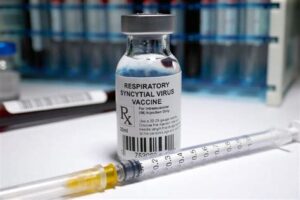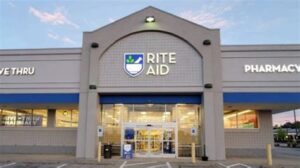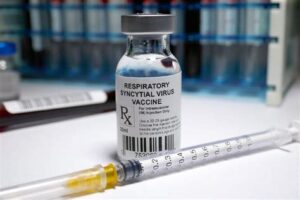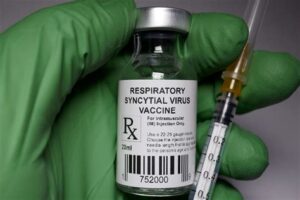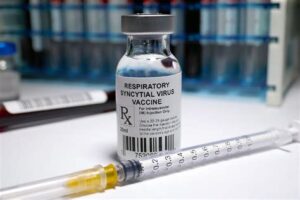Explore the RSV vaccine’s development, effectiveness, potential side effects, and future prospects in combating respiratory syncytial virus infections. Stay informed!Respiratory syncytial virus (RSV) is a significant cause of respiratory illness, especially among infants and the elderly. As awareness of its impact grows, so does the excitement surrounding a newly developed RSV vaccine. This blog post aims to provide a comprehensive overview of the RSV vaccine, from understanding its purpose and the science behind its development to its effectiveness and potential side effects. Additionally, we will explore the future prospects for this life-saving vaccine, highlighting its importance in preventing RSV-related complications. Whether you are a parent, healthcare professional, or simply interested in public health advancements, join us as we delve into the world of the RSV vaccine and its crucial role in protecting vulnerable populations.
Understanding the RSV vaccine
Respiratory Syncytial Virus (RSV) is a common virus that can lead to severe respiratory infections, particularly in infants and young children. The RSV vaccine is an essential development aimed at mitigating the impacts of this virus, especially among vulnerable populations. Understanding how the vaccine works, its components, and its target demographics is critical for caregivers, health professionals, and the general public.
The RSV vaccine primarily aims to stimulate the immune system to recognize and fight off RSV infections. By introducing a harmless component of the virus, the vaccine helps the body prepare for potential viral attacks. There are different types of RSV vaccines currently under development, including live-attenuated vaccines, subunit vaccines, and monoclonal antibodies, each with unique methods of action.
Healthcare professionals recommend the vaccine for at-risk populations, including those with chronic lung diseases, premature infants, and older adults. By educating families about the importance of the RSV vaccine, we can help ensure better prote
Development of the RSV vaccine
The journey of developing the RSV vaccine has been complex and multifaceted. Respiratory Syncytial Virus (RSV) is a leading cause of respiratory infections in infants and young children, making the development of an effective vaccine a critical public health goal.
Historically, the efforts to create an RSV vaccine began in the 1960s. Early attempts relied on inactivated virus vaccines, which, unfortunately, caused an enhanced disease when infants were exposed to the actual virus post-vaccination. This led to significant hesitance and setbacks in the vaccination research.
Advancements in vaccine technology have paved the way for renewed efforts in recent years. Innovative approaches, such as live attenuated vaccines and subunit vaccines, are now being explored. These methods allow for a safer response that encourages immunity without the risk of causing disease. Clinical trials conducted by various pharmaceutical companies are showcasing promising results, providing hope for the widespread availability of an RSV vaccine.
| Year | Milestone |
|---|---|
| 1960s | First attempts at developing an RSV vaccine |
| 1970s | Realization of enhanced disease in vaccinated infants |
| 2000s | Emergence of novel vaccine approaches |
| 2020s | Ongoing clinical trials showing promising data |
Effectiveness of the RSV vaccine
The effectiveness of the Respiratory Syncytial Virus (RSV) vaccine is a critical area of research, particularly given the virus’s significant impact on public health. Studies have shown that the vaccine can provide robust immunity against RSV, helping to reduce both the severity of symptoms and the risk of hospitalization among those affected.
Recent clinical trials indicated that the RSV vaccine can reduce the incidence of severe lower respiratory infections in infants and elderly populations. For instance, a large-scale study demonstrated that vaccine recipients had a 40-70% lower risk of being hospitalized due to RSV compared to those who were unvaccinated. This underscores the importance of the vaccine in protecting our most vulnerable groups.
In addition to direct protection, the effectiveness of the RSV vaccine also contributes to herd immunity. As more individuals gain immunity through vaccination, the overall transmission rate of the virus diminishes, further protecting those who cannot be vaccinated, such as infants and individuals with compromised immune systems. Thus, the RSV vaccine represents a critical tool in public health strategies aimed at controlling this viral infection.
Side effects of the RSV vaccine
The RSV vaccine, like many other vaccines, may cause certain side effects. These side effects can vary in intensity and duration from person to person. Most reactions are mild and temporary, making the benefits of vaccination outweigh the risks for the vast majority of individuals.
- Injection site reactions such as redness, swelling, or pain.
- Fever or chills post-vaccination.
- Fatigue or tiredness.
- Headaches and muscle pain.
- Nausea or gastrointestinal discomfort.
While serious side effects are rare, they can occur. It is crucial for individuals to monitor their health in the days following vaccination. If any unusual or severe symptoms arise, seeking medical attention promptly is highly recommended. Overall, the risks of lasting side effects are significantly lower compared to the potential severity of RSV infections, particularly in vulnerable populations such as infants and the elderly.
Future prospects for the RSV vaccine
The Respiratory Syncytial Virus (RSV) remains a significant public health concern, particularly for infants and elderly populations. With advancements in vaccine development, the future prospects for the RSV vaccine are looking promising, thanks to various ongoing research efforts.
Several pharmaceutical companies are currently in the race to develop effective RSV vaccines. Notable advancements in mRNA technology have enabled researchers to explore new methodologies for crafting an effective vaccine. As seen with the COVID-19 vaccines, mRNA platforms can elicit strong immune responses, which may also be applicable to RSV vaccination strategies.
Furthermore, ongoing clinical trials are aimed at understanding the long-term efficacy of the RSV vaccine in different age groups. With greater investment in vaccine research and emerging technologies, the prospect of a widely accessible RSV vaccine appears feasible. This could potentially lead to a significant reduction in RSV-related hospitalizations and mortality, securing a healthier future for vulnerable populations.
Frequently Asked Questions
What is the RSV vaccine?
The RSV vaccine is a preventive measure designed to protect individuals, particularly infants and young children, from respiratory syncytial virus (RSV), which is a common virus that causes respiratory infections.
Why is the RSV vaccine important for Spanish-speaking communities?
The RSV vaccine is crucial for Spanish-speaking communities as it helps to raise awareness and protect children who may be at higher risk of severe RSV infections due to factors like lack of access to healthcare.
What are the symptoms of RSV infection?
Symptoms of RSV infection include runny nose, coughing, sneezing, fever, wheezing, and difficulty breathing, which can escalate quickly, especially in infants.
At what age is the RSV vaccine recommended?
The RSV vaccine is typically recommended for infants under 2 years of age, especially those who are at high risk for severe RSV illness.
How is the RSV vaccine administered?
The RSV vaccine is usually administered through an injection, and depending on the specific vaccine, it may require multiple doses for optimal protection.
Are there side effects associated with the RSV vaccine?
Common side effects of the RSV vaccine may include soreness at the injection site, fever, and irritability. Serious side effects are rare but should be discussed with a healthcare provider.
Where can I find more information about the RSV vaccine in Spanish?
More information about the RSV vaccine in Spanish can be found through healthcare websites, local health departments, and organizations that focus on pediatric health and disease prevention.
